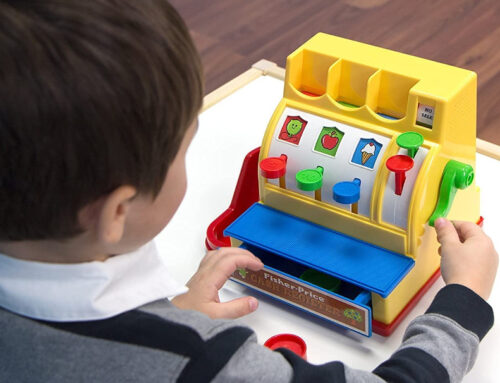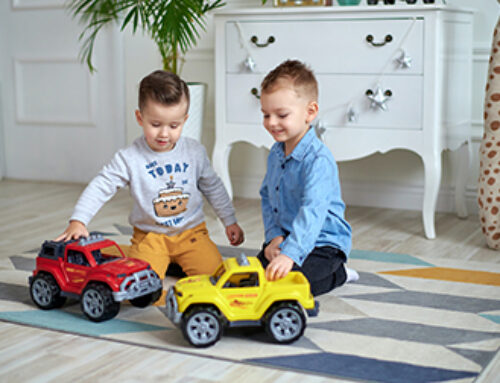Looking for something to do with minimal prep work? Printing out worksheets targeted towards your child’s skill level can help development across the board with minimal set up or clean up. It is also a great way to promote school readiness.
- Level I Worksheets (Tracing Lines 1 and Tracing Lines 2)
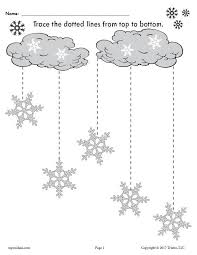
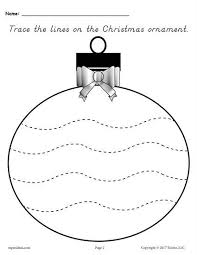
- Level 2 Worksheets (Connect the Dots)
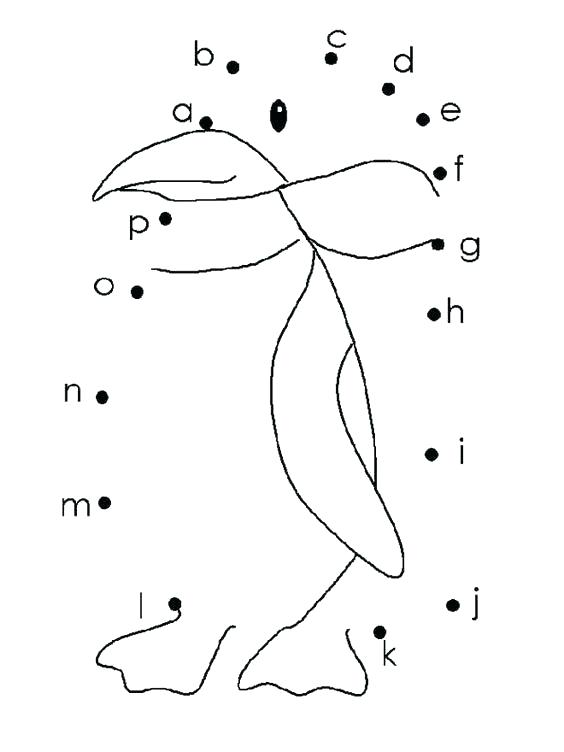
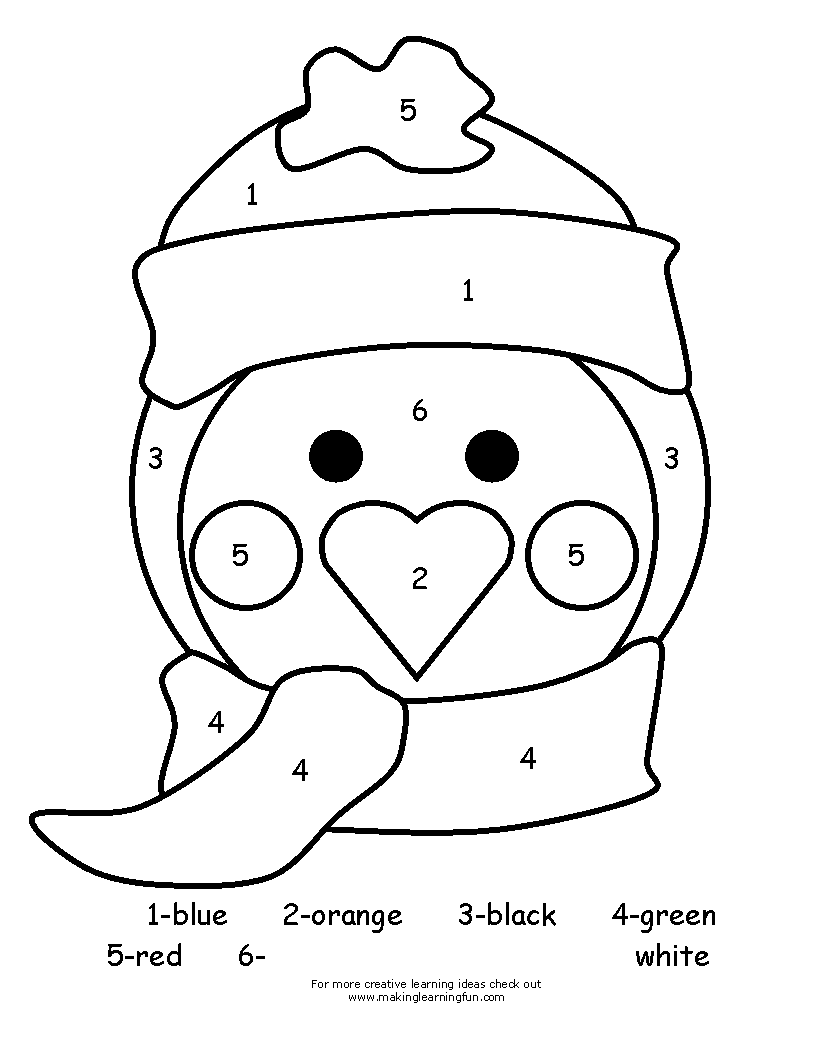
Areas of Development:
- Communication: Use simple language narrating the activity. Model expansion of the child’s verbal output by adding 1-2 words. Examples include labeling colors “red” and with direction “up” then pairing the two together “red goes up!” This helps promote attention to the task, along with communication development. You can also label what you see on the worksheet (I see a snowman!) and encourage your child to do the same (I.e. “what do you see?”).
- Fine Motor: Maintaining grasp on a writing utensil promotes fine motor control and academic readiness. Use of a marker, paint, and paintbrush with large handle, or bulky, round piece of chalk provides little resistance while writing and more surface area for your child to hold, making it easier for your child to successfully mark the paper. Utilizing a short crayon or pencil provides increased resistance while writing and increased challenge to maintain grasp patterns while working to increase the accuracy of writing and pre-writing strokes.
- Gross Motor: Postural control and proximal stability is the primary focus in the gross motor domain while engaged in tabletop tasks such as completing worksheets. Ensure your child has upright posture while completing these tasks, with feet flat on the ground and the table at an appropriate height. You can provide verbal or tactile cues to remind your child to keep their head off the table. For an increased challenge, you can tape the worksheet to the wall at your child’s eye level or have your child lay on their stomach propped up on both elbows. This increases the challenge, targeting upper extremity strengthening and postural control while changing the demand of sitting at a table.
- Social-Emotional: Turn-taking and joint attention are the foundational skills for social-emotional development and can be incorporated into many tasks. Passing the marker back and forth, switching colors, or trading types of writing utensils are great ways to target turn-taking. You can start with parallel play (each working on your own worksheet in the same space) and work towards taking turns completing the same worksheet, promoting flexibility, turn-taking, and sustained attention to tasks.
- Cognition: Engagement in worksheets is great for targeting the sequencing of steps, sustained attention, and problem solving when presented with a novel task. Encourage your child to complete steps of the worksheet in an organized way, beginning at the top left of the page and working your way across. Promoting sequencing from top to bottom and left to right coincides with pre-literacy skills.
Downgrade the Activity: Is your child not writing yet? Promote functional scribble! Use a large piece of paper on a vertical surface and encourage drawing a rainbow, with a long arching line. Encourage long, fluid strokes while standing in the center of the paper or drawing surface, promoting those foundational skills for writing! These include bilateral coordination, crossing midline, visual attention, and proximal stability.
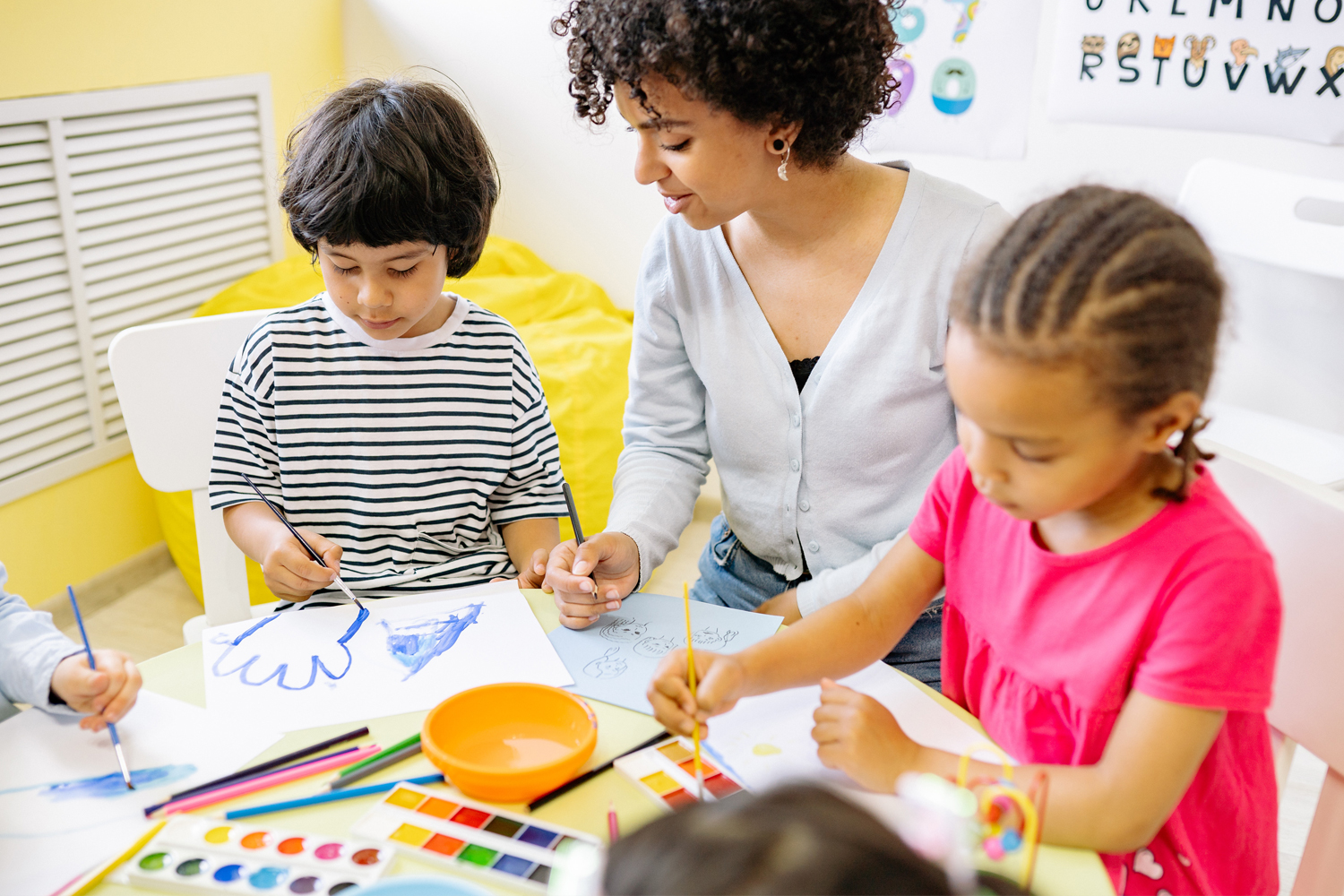
Blue Bird Day fosters socialization, sensory regulation, and pre-academic learning in children ages 2-7 years in therapeutic rotations that simulate preschool and kindergarten settings. Our compassionate therapists practice a relationship-based and family-centered approach, provide parent training, and collaborate on goals and individualized intensive treatment plans for your child.
We believe in a collaborative and multi-disciplinary team approach to therapy. A team of occupational therapists, speech-language pathologists, dietitians, developmental therapists, behavioral therapists, physical therapists, and therapeutic assistants are created for each child to ensure child and family are fully supported and the best possible results are achieved.
Options for individualized, group and virtual therapy sessions are available as well.
Want to learn more or you have a specific question? Feel free to connect with us here!


